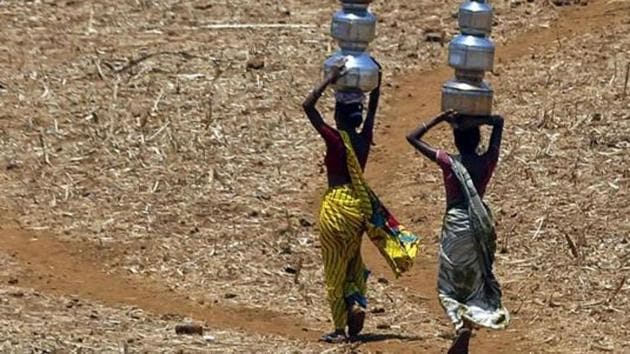India should take the lead on climate change
India is well placed to take action on climate change, and has voluntarily embarked on a path of higher ambition. Yet, the state of global climate is by definition one that requires collective international effort. The outcome of decisions made now will shape the health of nations for centuries to come.
The global climate is changing faster than at any point in the history of modern civilisation — a point made clear by the latest National Climate Assessment from the US Government published last week. The consequences of a warming planet are extensive and drawn-out,affecting the economy, ecology and health. The nature and scale of the response to climate change will shape the health profile of nations for centuries to come. The impacts of existing climate change is placed in stark contrast by recent analysis from the Intergovernmental Panel on Climate Change, focusing on extreme weather events such as flood, drought, changing weather patterns, cyclones, wildfires, glacial melt, and other unusual phenomenon witnessed across the planet.

Working with the Lancet Countdown, I have collaborated with some of the world’s foremost climate change and public health experts, documenting the health impacts of a changing climate. The Lancet Countdown is a multidisciplinary research collaboration between 27 leading academic institutions around the world. It is motivated by the idea that the response to climate change could be the greatest global health opportunity of the 21st century. Conversely, the failure to act could undo 50 years of public health gains.
For India, the data is clear in our 2018 Assessment, Shaping the Health of Nations for Centuries to Come: unless the world transitions to a low-carbon economy, climate change will undermine the very viability of health systems across the globe.
According to the World Health Organisation (WHO), 97% of major cities in low and middle income countries do not meet safe air quality guidelines. Our research indicates that exposure to ambient air pollution has resulted in some 3 million premature deaths per year globally, with over half a million of these occurring in India. Declining air quality correlates with increased risk of heart disease, lung cancer, and respiratory disorders, such as asthma and COPD. WHO rankings of air quality have shown that Indian cities are among the most polluted in the world.
As the sixth largest economy in the world, India’s need for further economic growth is clear. This development will be most effective when coordinated with sustainability and climate action. A carbon intensive economy leads not only to poor air quality and high emissions, but a rise in extreme heat. Globally, 157 million more people were exposed to heatwave events in 2017, compared to 2000. This is not just difficult for a country’s agricultural and labour force sweating it out in 40+ degree days; it also has far reaching effects on the economy of a country like India. In 2017, India experienced over 75 billion total hours of labour lost due to intense heat. This is 48.8% of the total global loss and 7% of India’s total working population.
Increasingly, climate change is contributing to prolonged, year-round droughts in parts of Asia and across the world. Increasing heat and changing weather patterns are affecting production and food security in weather-dependent agricultural economies, such as India. The recent floods in Kerala were described as the “worst flood [the state has seen] in a hundred years” and resulted in 1% loss of the state’s GDP.
Outdated fossil fuel economies will only accelerate global warming and the spread of disease. Continuing to phase out coal demand is clearly crucial in meeting the target of the Paris Agreement. There has been a downward trend in coal consumption around the world, growth in India was 2.4% in 2016, which represents a decrease from previous years. Increases in renewable energy installation in recent years have doubled that of their fossil fuel counterparts, with indicators of investment proving that a transition to clean energy is already underway. A rise in employment in the sector will be a key indicator to follow, with Bloomberg New Energy Outlook 2018 suggesting that India has the cheapest new wind and solar power anywhere in the world.
Our report found, for the first time, that coal use accounts for nearly 16% of deaths globally due to ambient air pollution from fine particulates. Reversing this trend will require availability of favourable technology to make the switch, so that the world will no longer have to depend on coal, but will also require political will, most of all, to make the transition.
India is well placed to take action on climate change, and has voluntarily embarked on a path of higher ambition. Yet, the state of global climate is by definition one that requires collective international effort. The Conference of Parties (COP 24) to the United Nations Framework Convention on Climate Change (UNFCCC) will be held in Katowice, Poland, next week. Agreeing on robust guidelines to implement the Paris Agreement is essential in solidifying commitments made so far. The outcome of decisions made now will shape the health of nations for centuries to come. India can and should take a lead as a country with a lot at stake.
Nicholas Watts is the executive director of the Lancet Countdown
The views expressed are personal






